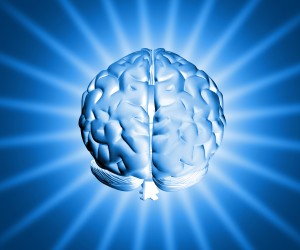Psychology Meets Religion, Part 3
 Psychologists have often treated mental processes — attention, memory, and decision making — as divorced from the body. As if the mind was processing information in a mental vacuum undisturbed by the other forms of input that are constantly fed to our brain (e.g., heartbeat, fatigue, internal temperature, hunger, thirst).
Psychologists have often treated mental processes — attention, memory, and decision making — as divorced from the body. As if the mind was processing information in a mental vacuum undisturbed by the other forms of input that are constantly fed to our brain (e.g., heartbeat, fatigue, internal temperature, hunger, thirst).
However, recent theories in embodied cognition are challenging that idea by showing how our body can color our cognitive processing.
Psychology Meets Religion (Part 2)
 Which would you rather have: Greater self control or higher intelligence?
Which would you rather have: Greater self control or higher intelligence?
There are obvious advantages to choosing intelligence. You would have an enhanced ability to apply your knowledge towards solving novel problems, be able to integrate multiple pieces of information and see clarity and order where others saw chaos. If you worked hard enough, you would definitely be able to secure a nice job for yourself and make good money.
The Brain Science of Ambition
 Yesterday, after we published Gerardo’s article on theories of intelligence, a fascinating article appeared on Scot McKnight’s Jesus Creed blog:
Yesterday, after we published Gerardo’s article on theories of intelligence, a fascinating article appeared on Scot McKnight’s Jesus Creed blog:
This article was written by ‘RJS’ who is a frequent contributor on the Jesus Creed website. RJS is a sincere Christian, a woman, an accomplished scientist, and a faculty member at a secular university. She writes primarily about the relationship between faith and science and occasionally about the role of women in the church.
In this article, she discusses what brain imaging technology (fMRI) has revealed about some of the Seven Deadly Sins. She reports that lust, especially in males, “sets nearly the whole brain buzzing,” producing a biochemical response that can be very addicting and destructive. Envy produces patterns of brain activity that reflect ‘a kind of social pain,’ and when the object of envy (the person who incites it) experiences a downfall, the response is a kind of pleasure which is well described by the German word schadenfreude.
Psychology Meets Religion (Part 1)
 As a student of psychology, I encounter many research studies that can speak on matters of faith and personhood. If the Bible teaches us about who man inherently is, then I have believed that even secular science should confirm this as faith and science can’t conflict (though faith and scientist can). And indeed, in many studies I have come across, this is exactly what I have found. There are quite a few psychology studies that confirm the Bible’s teaching on who man is, what motivates man, and what ultimately makes him happy.
As a student of psychology, I encounter many research studies that can speak on matters of faith and personhood. If the Bible teaches us about who man inherently is, then I have believed that even secular science should confirm this as faith and science can’t conflict (though faith and scientist can). And indeed, in many studies I have come across, this is exactly what I have found. There are quite a few psychology studies that confirm the Bible’s teaching on who man is, what motivates man, and what ultimately makes him happy.
One line of research that has recently gotten a lot of attention deals with what are called “lay theories of intelligence.” This is not a theory on what intelligence is as much as a theory about what people think intelligence is and how it shapes their behavior.

Last 30 Comments